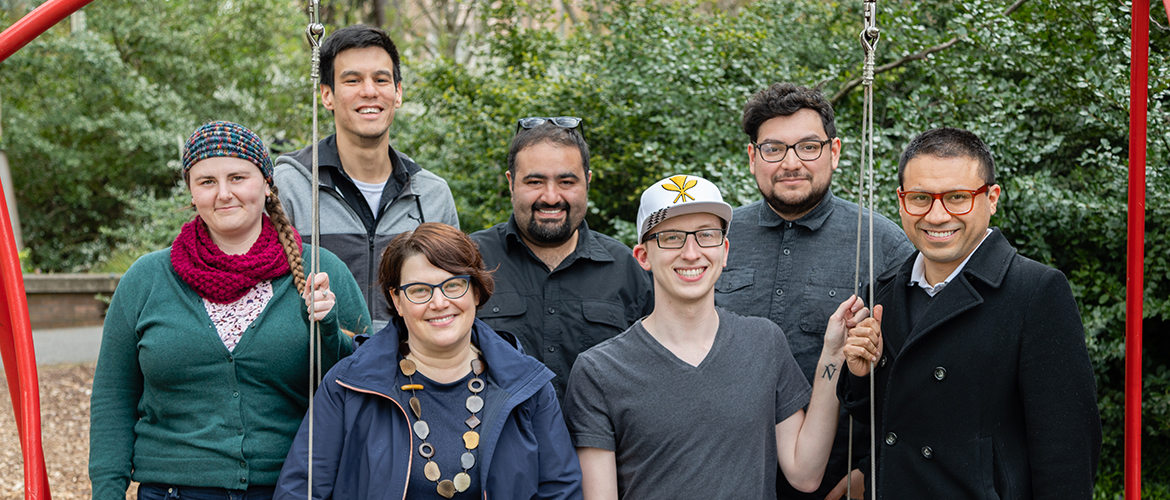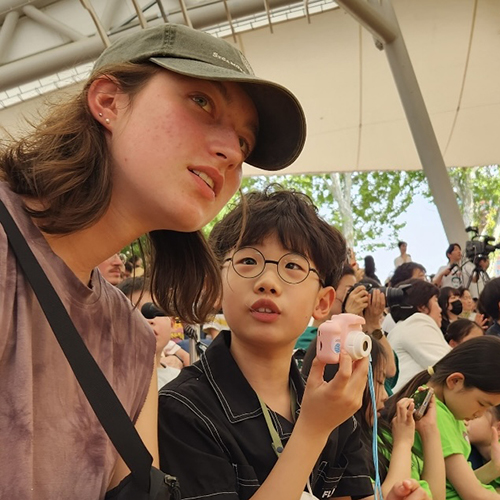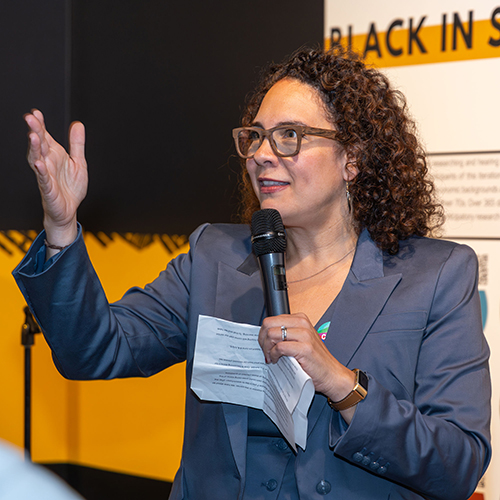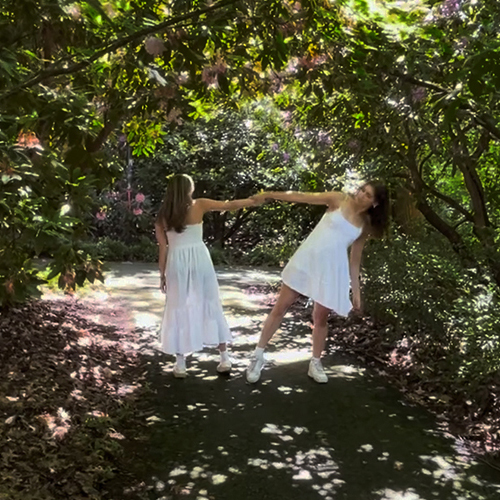For two days in May, students at Seattle's Chief Sealth High School are heading to the movies — without leaving their school. The high school will host a Spanish film festival featuring films from Mexico, Chile, Spain, and Colombia, all selected specifically for a Chief Sealth audience. University of Washington master’s and PhD students in Spanish Studies spent months planning the event, which includes panel discussions and curriculum materials in addition to film screenings.
The festival is the brainchild of Leigh Mercer, UW associate professor in Spanish and Portuguese Studies. Mercer is often asked to develop Spanish-language programming for film festivals, and anticipates that academics will be increasingly involved in such public scholarship. Determined to prepare her students, she developed a graduate seminar — Spanish Language Film Programming and the Film Festival Phenomenon — that challenged students to organize a micro-festival at Chief Sealth. Mercer created the course with support from a Mellon Summer Fellowship for New Graduate Seminars in the Humanities, through the Simpson Center for the Humanities.

None of the graduate students in the seminar had previous experience programming a film festival. Some have never taken a film course. But over winter quarter, they took a deep dive into Spanish-language films to plan the two-day festival.
“Chief Sealth is the most diverse high school in Seattle, with a Spanish-language immersion program,” says Mercer. “Our students were looking for films that would have a huge impact and engage that community. Film has the power to make you jump in your seat, to startle you, to move you and start conversations. Often it’s about the high school students seeing young people on the screen that look like them — something they rarely see if they go to the local blockbuster movie theater.”
In class, the graduate students viewed films that have been popular on the film festival circuit, analyzing why those films connected with audiences. “Since they were all non-commercial films with some level of complexity, watching them was both entertaining and thought provoking,” says PhD student Alfredo Barnaby, who has volunteered at the Seattle Latino Film Festival. Organizers from that film festival, as well as the Guanajuato Film Festival and the Seattle International Film Festival, spoke to the class about their work. A Chief Sealth High School teacher also visited the class to provide insights into Chief Sealth’s student population.
I feel for kids who don't see themselves represented in film, and I want them to have that experience.
“It was definitely helpful to have the opinions and needs of a teacher who spends every single day in the trenches,” says PhD student Rigoberto Gutiérrez Piñón. “He was able to provide more information about what type of student population we were programming for, and what topics were being addressed in the classroom. For me, it made the project more real and drove home the responsibility we had to Chief Sealth and its students.”
Armed with information, the UW students — working in two teams — began screening films and film trailers. One team chose social justice and diversity as its theme; the other chose marginalization and borders. They sought films that would address their theme but also stimulate discussion, represent a variety of Spanish-speaking regions, appeal to diverse tastes, and fit within their limited budget.
“I am very accustomed to watching films for pleasure,” says Gutiérrez Piñón. “However, watching film for the purpose of programming is a completely different beast.” An additional challenge: the Seattle Public Schools’ guidelines for appropriate film content meant no nudity, no sex, and no foul language. To complicate matters, many of the films under consideration were unrated.
Mid-quarter, the two teams presented their proposals, outlining their festival’s theme, the films to be included, a detailed budget, and related educational programming. “The students had to think about building a conversation into the film program, beyond just experiencing the film itself,” says Mercer. “That’s one of the magical things about films. Even after a popcorn movie, you want to talk. People are ready to engage.”
Since completing the seminar, the graduate students have continued with the project. One of the proposals became the blueprint for the festival, with the students volunteering their time to see it through. There are panelists to be scheduled, curriculum materials to be finalized, and licensing fees to be negotiated. The festival begins Friday, May 4, with related curriculum materials introduced in Chief Sealth classes earlier that week. The first film will screen during a school assembly, with another shown that evening and two more the following day. Guest speakers and other programming will be presented between screenings.
Mercer hopes the Chief Sealth film festival is the first of many. She would like to introduce the festival at other high schools across the state, particularly in areas with large Hispanic populations, and is seeking grant support to make that happen.
“Washington state is now the fourteenth most Hispanic state in the country,” she says. “I feel for kids who don’t see themselves represented in film, and I want them to have that experience. Film can be entertainment, but it can also be so much more. It has the power to ask big questions, light a fire of curiosity in people. Because of the beauty of it, the unexpected nature of it, it’s a very compelling medium.”
Learn more about the Spanish Language Film Festival on May 4 & 5.
More Stories

Finding Family in Korea Through Language & Plants
Through her love of languages and plants — and some serendipity — UW junior Katie Ruesink connected with a Korean family while studying in Seoul.

Interrupting Privilege Starts with Listening
Personal stories are integral to Interrupting Privilege, a UW program that leans into difficult intergenerational discussions about race and privilege.

Dancing Across Campus
For the dance course "Activating Space," students danced in public spaces across the University of Washington's Seattle campus this spring.